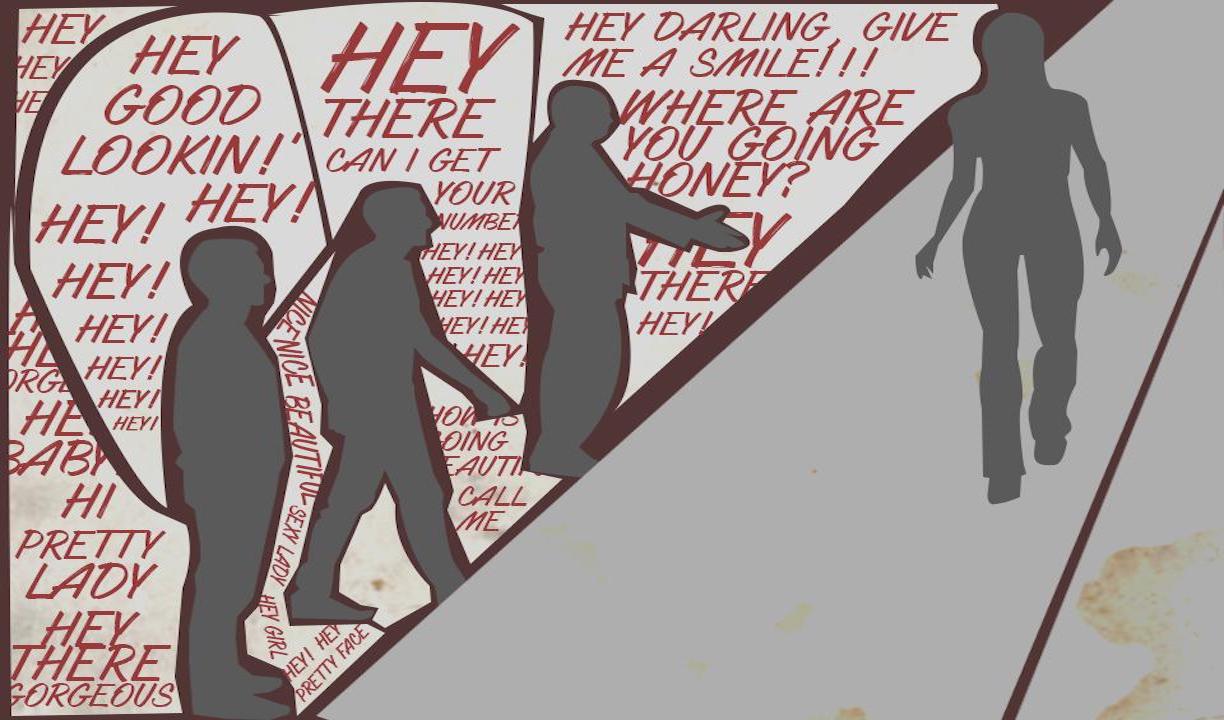GABY RUSLI WRITES — Was it my clothes? Did I make the mistake of dressing slightly more provocatively today without realizing it? Why are people so hostile to women? Why do they stare at me as if I am walking around with a target on my back?
These questions have become a part of my everyday thoughts. Before I leave home, I glance in the mirror to make sure that maybe, each day, I will be able to avoid the unsolicited comments from strangers about my body or the clothes I’m wearing. That is my reality, having moved back home to a small town in Indonesia.
I remember that day all too clearly— it was 9 am. I didn’t feel too great waking up, so I chose to wear white, which has always been my favorite color as I’ve always believed white to be a symbol of optimism. The dress was exactly knee length, with medium length sleeves that had flowing ruffles at the bottom. I had been with my father, and he was in the coffee shop across the street, a block away from the grocery store I wanted to get something from. I heard whistles from the construction crew at a site I walked past but I didn’t think too much of it. I convinced myself that it probably came from the cars passing by. Though my stomach was in knots, I continued, head held high, only to hear them continue the catcalling, including a lot of “what a beautiful dress you have on” and “let me look at you.” I walked faster, hoping they would realize how uncomfortable I was but unfortunately, I had to go through it again on my way back to the coffee shop. Later that morning, I decided to keep this experience to myself as I knew, somehow, I would be blamed for it.
In another instance, it was a Saturday afternoon, and the sun was shining bright and hot. That day I wore a simple t-shirt tucked into my skinny jeans. I sat down in the corner of a well-lit restaurant, by the windows, with my mother facing me across the table. The waiter took our order and as we waited, I realized that the men at the table not far behind my mother were looking at me like I was some kind of wondrous spectacle. As I talked and ate with my mother that entire lunch, they couldn’t stop staring, going so far as smiling at me and sneaking in little waves and whispering to each other as they continued to observe every little thing I was doing. “Take it as a compliment,” some of my friends said when I told them the story. Why did this “compliment” make me feel horrible? Another common response was “this is just how it is here, maybe dress a little less attention-grabbing?” I don’t think stepping up my layers game would prove to be successful or logical in a tropical climate.
I have gone through countless instances of sexual harassment, and not exclusively in Indonesia. It is rare that my story is heard, validated, and understood. I am not just talking about men denying women their reality but also women denying other women’s reality. Is it that we just have to accept it and blame ourselves for not doing more of this or more of that to avoid the consequence?
Being a woman means having to restrain who you are; being called numerous derogatory words; and accepting the uncomfortable status quo that forces us to constantly look over our shoulders and be as vigilant as possible for our own sake. It means knowing that no matter what we do, sexual harassment is inevitable even in the tiniest and most covert forms that to some people might pass as a compliment.
This shared experience should create a strong(er) bond of solidarity between women and between human beings in general.
Unfortunately, in Indonesia, economic concerns and issues take precedence over human rights issues in the government’s agenda. Additionally, there is the passing of outdated and traditional gender identity and ideas from one generation to the next, along with the lack of education for the majority of the population, which in turn makes it hard to envision a major change in human rights in the near future-especially concerning women and the LGBTQ community, both of which continue to face varying degrees of challenge even in more modernized, Western countries. Sadly, this combination of economic concerns, the maintenance of traditions and the people’s lack of awareness and support for change helps maintain the status quo. And sadly, this is not a choice for all Indonesians.

